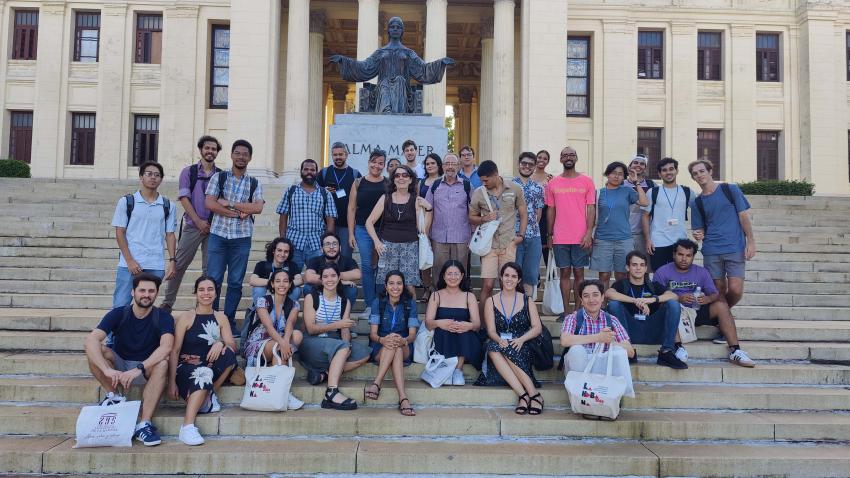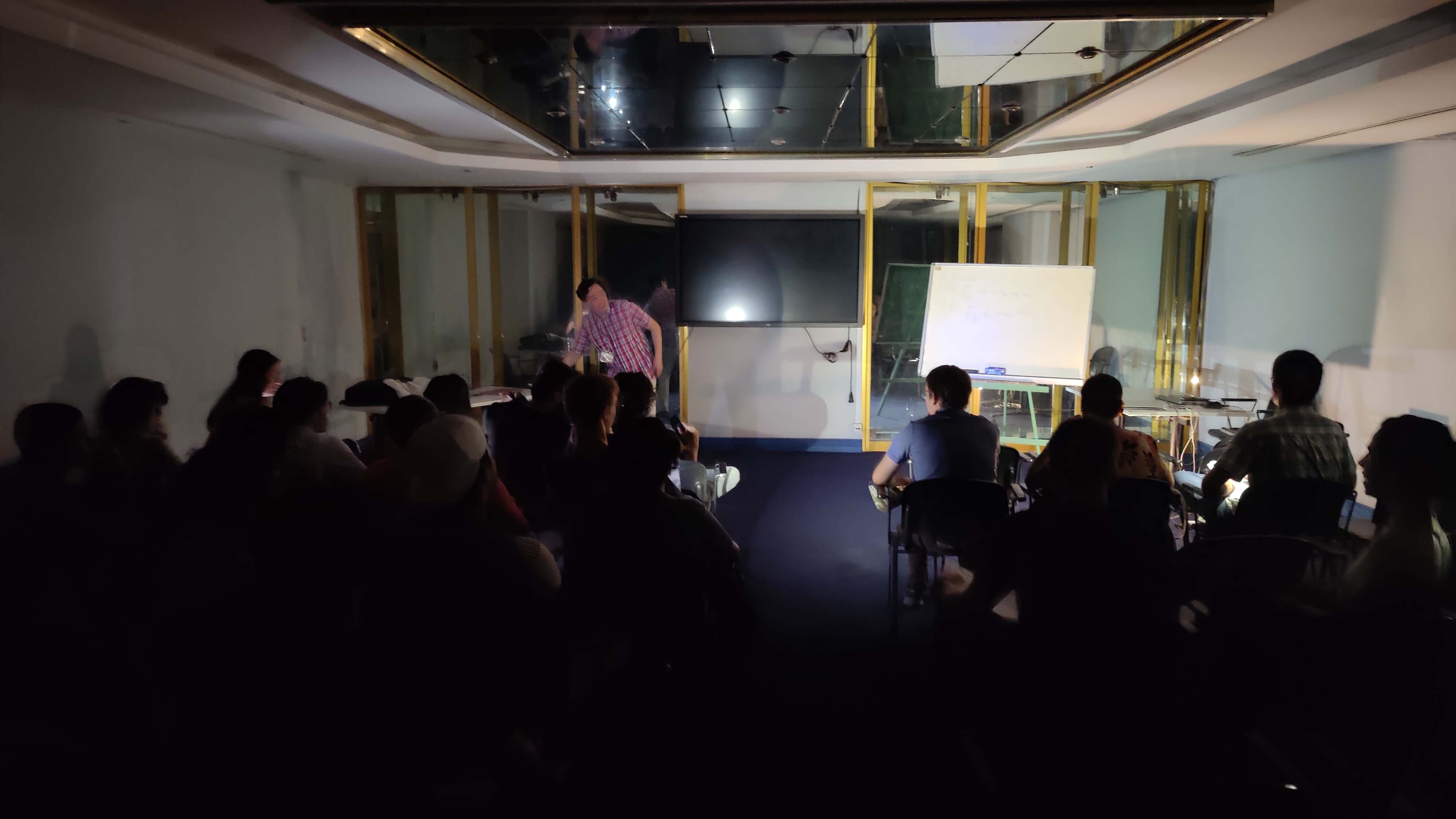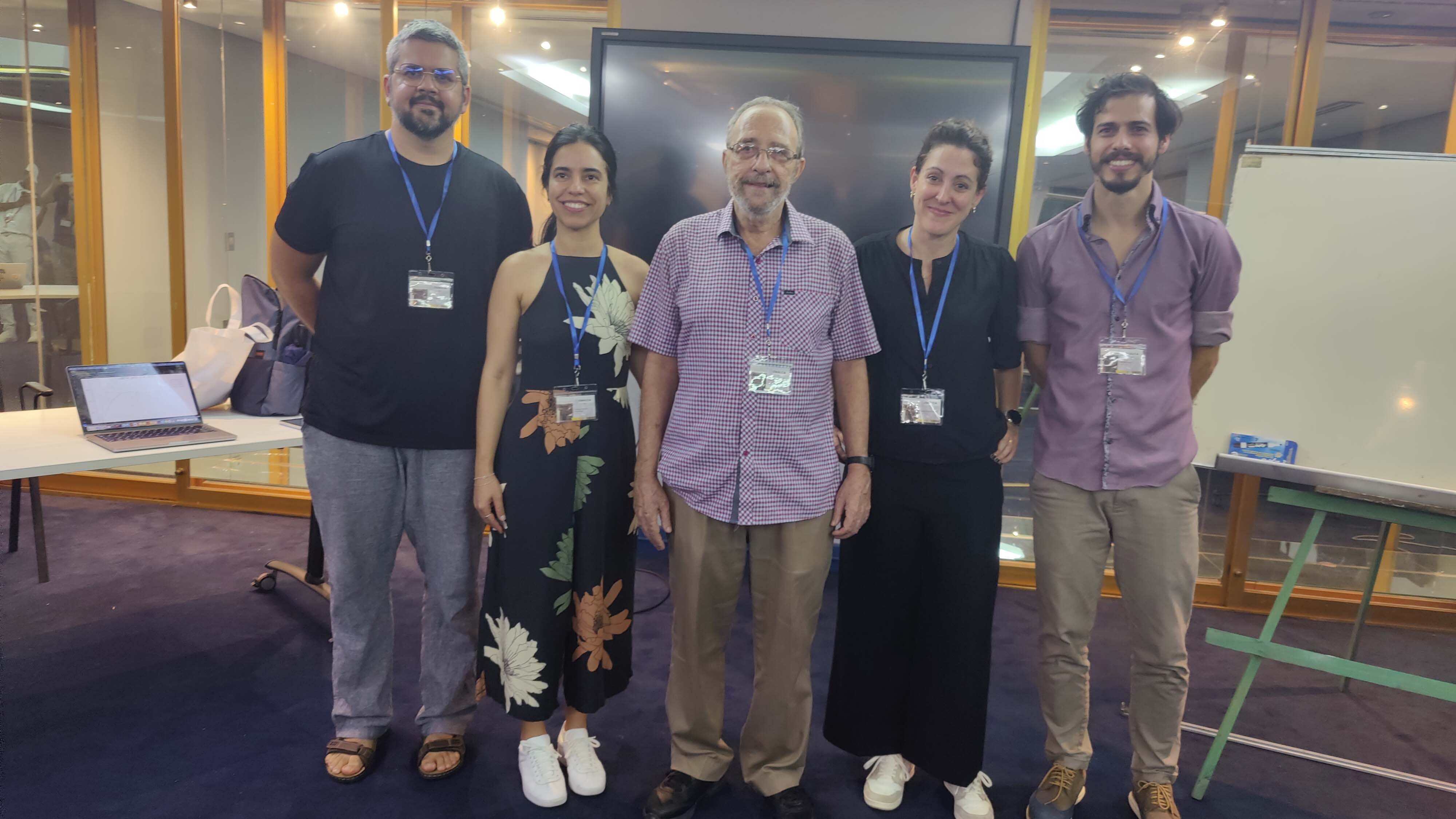
SCI Supports Probability School in Cuba Amid Hurricane Challenges
The School of Computing Instruction (SCI) is helping to improve global mathematics education through its involvement with the Latin American and Caribbean Mathematics School (Escuela de Matemática de América Latina y el Caribe, or EMALCA).
SCI Lecturer Gerandy Brito served on the scientific committee for this year’s EMALCA program, which took place in Havana, Cuba, from November 4 to 8. The program focused on recent developments in probability theory and aimed to inspire future mathematics scholars by connecting them with leading researchers.
Overcoming Unexpected Challenges
This year’s event faced major disruptions due to a hurricane that delayed the conference by two days. Power outages affected event logistics throughout the week.
"I never thought this would be the experience," Brito said, reflecting on the difficulties.
Despite setbacks, organizers rescheduled sessions and participants adapted to the limited resources. Most local students had to overcome significant obstacles to attend.
"The students in Cuba didn’t have a lot of resources to travel. So, they actually had to make an effort to come. And they did," Brito said.

Brito highlighted the students' and organizers' flexibility and dedication in managing the challenges. "I was lucky. The people around me were very supportive. We shifted stuff around in the calendar and powered through Thursday and Friday," he said.
Expanding Academic Reach
Brito’s involvement in the conference aligns with his mission to strengthen academic ties between Georgia Tech and Latin America.
This initiative is part of a larger program led by the Latin American and Caribbean Mathematical Union (UMALCA), which annually funds four to five mathematics schools across Latin America and the Caribbean. These schools aim to spark interest in advanced studies among undergraduate and first-year master's students.
Focused Curriculum on Probability Theory
This year, Brito and his team developed a curriculum focused on probability theory and its applications.
“We have a probability background, so we wanted to do something along the edges of probability and its interaction with all fields,” Brito said.
The program offered students lectures and opportunities to explore real-world applications of probability theory. However, due to the weather-related disruptions, problem-solving sessions had to be canceled. Instead, students were given problems to work on independently over the following weeks, with the opportunity to reach out to organizers for questions.
Connecting with Researchers and Guiding Academic Growth
Although the problem-solving sessions were canceled, the program still offered students valuable opportunities to connect with researchers from Latin America, France, and the U.S. Through talks and lectures, students explored the intersections of probability and other fields, gaining insights into ongoing research and potential opportunities for collaboration.
“The goal was to connect researchers and students from the region. We tried to open avenues for them to collaborate,” Brito said. “We told the students—if you want to study math and do something beyond your undergrad, these people are working on all these cool problems and ideas. So maybe you want to do a Ph.D. in one of these places.”
Brito reflected on his early academic uncertainties. “I was always so lost in those years. I wasn’t quite sure how to find an advisor, find a project that fit, or where to look.”
This personal experience motivated him to offer guidance to students in Cuba.

Fostering a Globally Inclusive Mathematical Community
Participating in events like EMALCA demonstrates SCI’s commitment to fostering an inclusive global academic community. The program’s focused curriculum, emphasis on accessibility, and commitment to connecting students with international researchers highlight the impact of educational partnerships in advancing mathematics education.
To ensure accessibility, EMALCA conducted the program entirely in Spanish. Brito’s lectures were also recorded and will be available online, ensuring that students in Cuba and beyond can benefit from the content.
“I wanted to reach the people in Cuba,” Brito added, highlighting his desire to connect with students who may have fewer opportunities for international academic experiences.
For more information about the program, visit the EMALCA website here.


